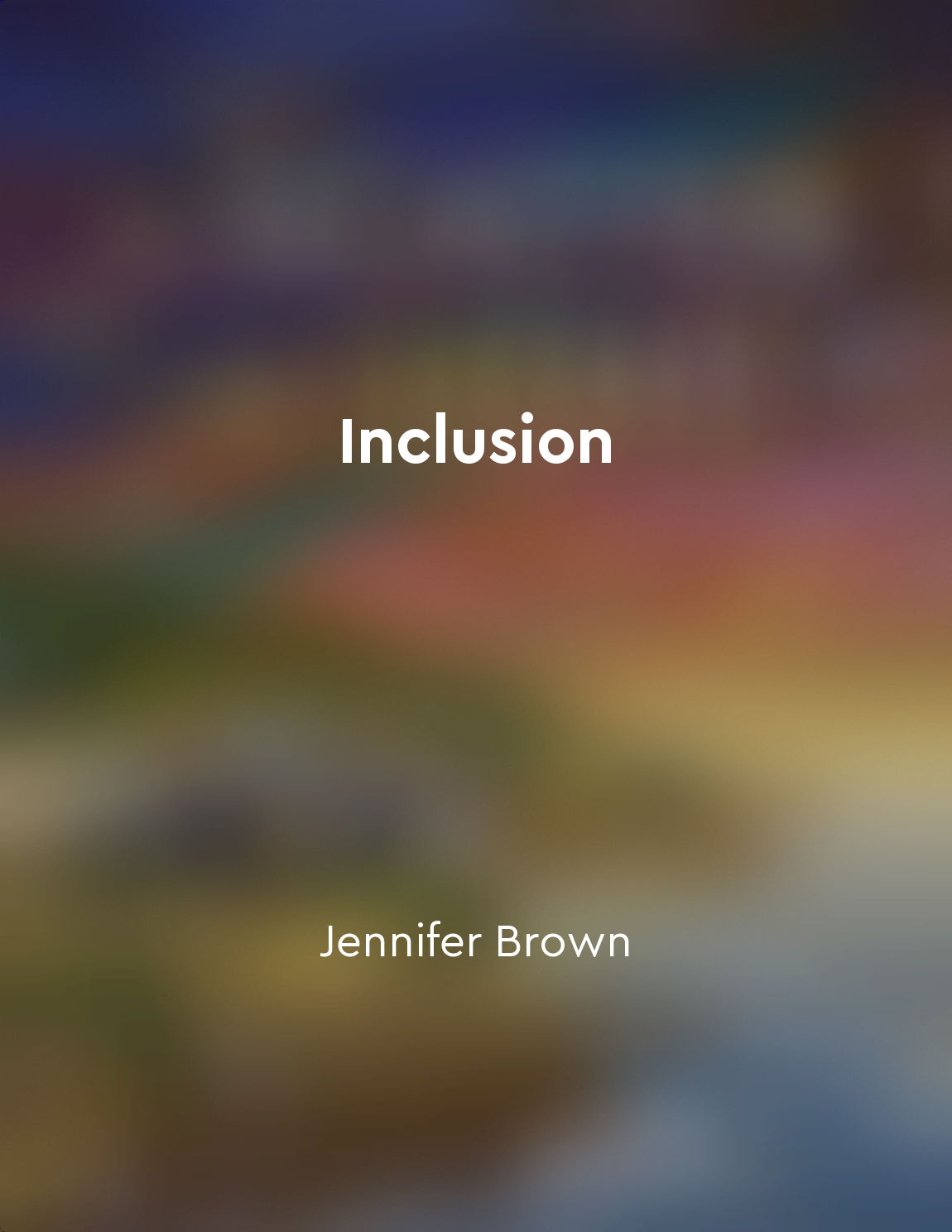Elitedriven solutions may fail to address the needs of marginalized communities from "summary" of Winners Take All by Anand Giridharadas
The belief in elite-driven solutions can be traced back to a fundamental assumption: that those with the most resources are best positioned to solve society's problems. This assumption is predicated on the idea that the wealthy and powerful have access to the expertise, networks, and financial resources necessary to effect change on a large scale. However, this assumption fails to take into account the perspectives and needs of marginalized communities. When solutions are driven by elites, they often reflect the priorities and interests of those in positions of power. This can result in initiatives that overlook or disregard the realities faced by marginalized communities. The experiences and voices of those who are most affected by social issues are frequently sidelined in favor of top-down approaches that prioritize efficiency and outcomes that are measurable in terms of financial returns or public recognition. Moreover, elite-driven solutions may perpetuate existing power dynamics and inequalities. By relegating marginalized communities to the role of passive recipients of charity or aid, these solutions can reinforce the very structures of privilege and oppression that contribute to their marginalization in the first place. In this way, elite-driven initiatives may inadvertently serve to maintain the status quo rather than challenging it. Additionally, the pursuit of elite-driven solutions can lead to a concentration of resources and decision-making power in the hands of a select few. This can limit the diversity of perspectives and approaches that are brought to bear on complex social problems, resulting in a narrow range of solutions that may not fully address the multifaceted needs of marginalized communities. Without meaningful engagement with those who are directly impacted by social issues, elite-driven solutions are likely to fall short of creating lasting and equitable change. In order to truly address the needs of marginalized communities, it is essential to center their voices and experiences in the process of designing and implementing solutions. This requires a shift away from top-down approaches that prioritize efficiency and outcomes over empathy and understanding. By embracing a more inclusive and participatory approach to problem-solving, we can begin to challenge the entrenched power dynamics that perpetuate inequality and work towards a more just and equitable society.Similar Posts
Power dynamics are pervasive in every aspect of our lives
Power dynamics are like the air we breathe - invisible yet constantly shaping our interactions, decisions, and relationships. F...

Stand in solidarity with others
In our journey towards justice and equality, it is essential that we stand in solidarity with others. This means recognizing th...
Charity can act as a distraction from the underlying causes of social problems
The practice of charity is often viewed as a noble and selfless act, a way for the wealthy and powerful to give back to society...
Genuine progress requires a redistribution of both wealth and power
The idea behind genuine progress is that it cannot be achieved without a fundamental shift in the way wealth and power are dist...
Demographics shape the future
Demographics shape the future by influencing every aspect of society, from workforce composition to consumer behavior. Understa...

Commit to continuous learning
Continuous learning is a vital component of building an inclusive culture within organizations. It is a commitment to ongoing e...
Economic exploitation is a consequence of profitdriven motives
Economic exploitation is a direct result of the profit-driven motives that guide the actions of powerful corporations and gover...

Marginalization erodes selfworth
The feeling of not belonging, of being pushed to the edges, can have a devastating effect on one's sense of self. It chips away...
Charity can act as a distraction from the underlying causes of social problems
The practice of charity is often viewed as a noble and selfless act, a way for the wealthy and powerful to give back to society...
Building awareness is crucial
The idea that building awareness is crucial cannot be overstated when it comes to addressing the urgent issue of climate change...
